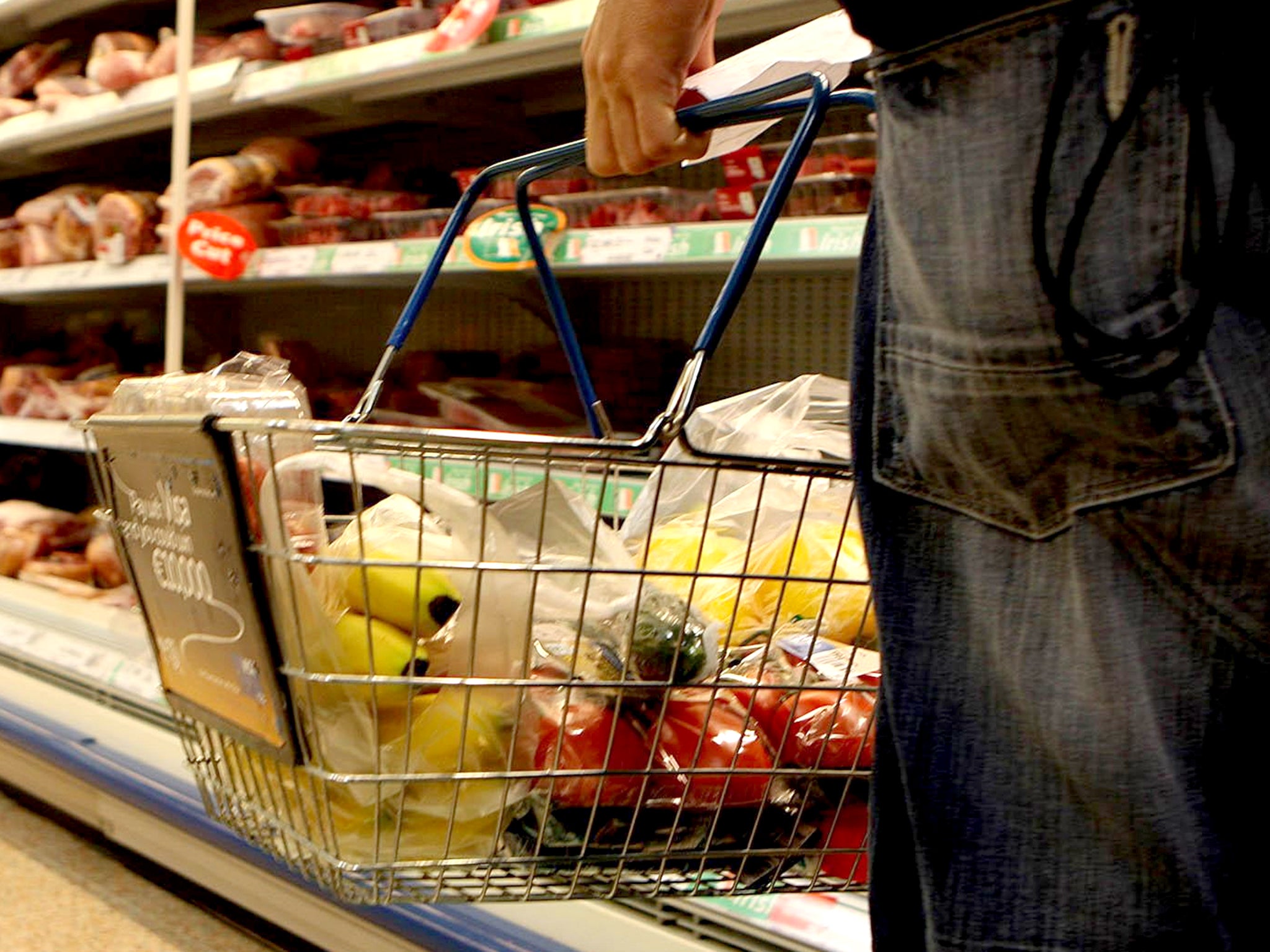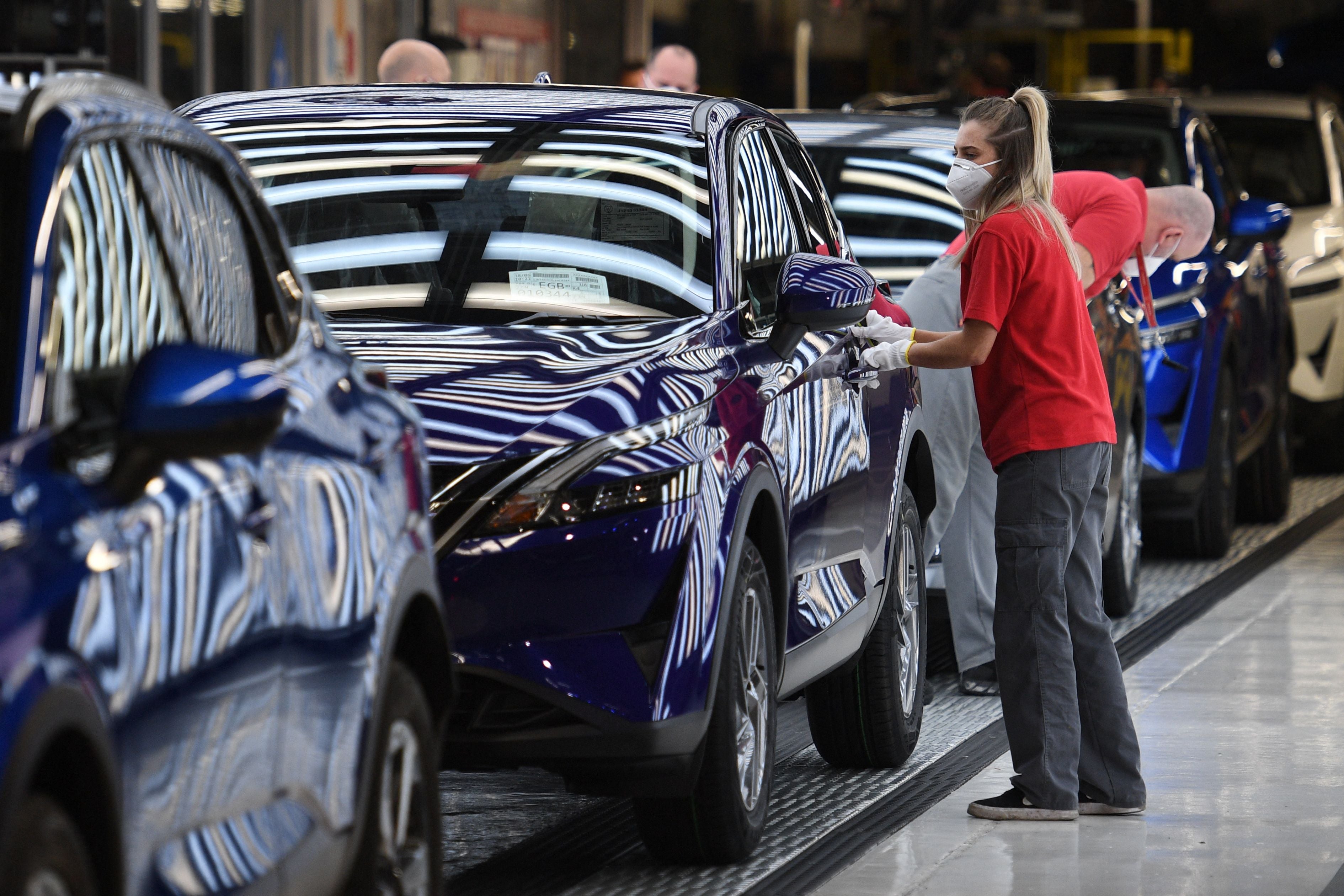Pingdemic ‘threatens food supplies’ amid warnings app is ‘losing social consent’
Workers being put out of action without sick pay could see app being deleted en masse, unions warn

Your support helps us to tell the story
From reproductive rights to climate change to Big Tech, The Independent is on the ground when the story is developing. Whether it's investigating the financials of Elon Musk's pro-Trump PAC or producing our latest documentary, 'The A Word', which shines a light on the American women fighting for reproductive rights, we know how important it is to parse out the facts from the messaging.
At such a critical moment in US history, we need reporters on the ground. Your donation allows us to keep sending journalists to speak to both sides of the story.
The Independent is trusted by Americans across the entire political spectrum. And unlike many other quality news outlets, we choose not to lock Americans out of our reporting and analysis with paywalls. We believe quality journalism should be available to everyone, paid for by those who can afford it.
Your support makes all the difference.Concerns have been raised that the increasing number of pings sent by the NHS Test and Trace app could potentially cause food shortages as workers are forced into self-isolation.
More than 530,000 self-isolation alerts were sent to app users in England and Wales during the first week of July. This represents a 46 per cent increase in the number of alerts compared to the previous week.
The increase has sparked fears that more and more workers being put out of action would disrupt the food supply chain.
The number of people being advised to self-isolate for up to 10 days could increase by about four million, Lord Bilimoria, president of the Confederation of British Industry, has warned.
Tim Morris, the chief executive of the UK Major Ports Group, described what has been nicknamed the “pingdemic” as the most “significant threat to ports’ resilience we have seen yet”.
He said: “If the current trajectory of [worker] absences continues without the government taking any action, there has to be a risk of disruption to important supply chains, including food.”
One in 10 people working in the meat processing industry has been told to self-isolate by the app, and this has fuelled concerns that companies may have to “start shutting down production lines altogether”.
Unite, Britain’s biggest union, has said the app is causing “havoc” on production lines. Assistant general secretary Steve Turner urged ministers to make changes by the time Covid-19 restrictions are lifted on 19 July, “or else people will simply start deleting the app en masse to avoid isolation notices”.
Due to shortages of staff, trains have been cancelled, and councils across the country have warned residents that garden waste and recycling bins would not be emptied for weeks to prioritise the collection of normal household rubbish.
Nissan and Rolls-Royce have warned that they may have to close their factories as a result of hundreds of their workers being told to stay home.
It is understood that up to 900 workers at Nissan’s Sunderland car plant have been sent home, more than 10 per cent of the total workforce.
One-third of staff in restaurants and pubs have been advised to stay at home, according to UK Hospitality boss Kate Nicholls.
Earlier this week, queues built up at security in Heathrow airport because of more than 100 staff were absent after being pinged.
Paul Nowak, deputy general secretary of the Trades Union Congress, said on BBC Breakfast there was a “picture of concern” over the lifting of coronavirus restrictions from Monday.
He added: “Large numbers of people can’t afford to self-isolate when that ping comes through on their phone because they’re not entitled to statutory sick pay. In the face of that we’re going to have people turning off that app.”

In urgent meetings between government officials from three departments and business groups in recent days, it was stressed that an app alert is advisory, whereas contact from the official NHS Test and Trace service is legally enforceable.
However, Downing Street continued to insist that anyone “pinged” by the app had to self-isolate, despite The Daily Telegraph having reported that some people were being identified as contacts – of people who have tested positive for the virus – through building walls.
No 10 said it was still essential that people follow the isolation advice, that will not be lifted, even for the fully vaccinated, until 16 August.
The government previously hinted that it could reduce the “senstitivity” of the app. Transport secretary Grant Shapps had suggested that it could be “tailored” to align with the lifting of Covid-19 restrictions on Monday.
But it has been reported that there are no current plans to change the app. Instead, it has been said that it will be kept under “constant review”.
Fomer health secretary Jeremy Hunt said on Saturday that there is a risk that the app could “lose social consent”, and suggested that the government should “make it less sensitive or move to a system where you have to get a test when you are pinged”.
He added: “The risk is that if people are deleting the app then you can’t even ping them to ask them to have a test.”
The criticisms over the app came as the number of new daily Covid-19 cases reached 51,870 on Friday.
Prime minister Boris Johnson has insisted that the lifting of lockdown restrictions on Monday is “irreversible”.
Mr Johnson may be forced to reimpose lockdown restrictions if Covid cases continue to rise into the autumn, Mr Hunt warned.
He said that the situation facing the NHS is “very serious” with rapidly increasing numbers of hospital admissions.
Mr Hunt told the BBC Radio 4 programme Today: “The warning light on the NHS dashboard is not flashing amber, it is flashing red.”
Join our commenting forum
Join thought-provoking conversations, follow other Independent readers and see their replies
Comments